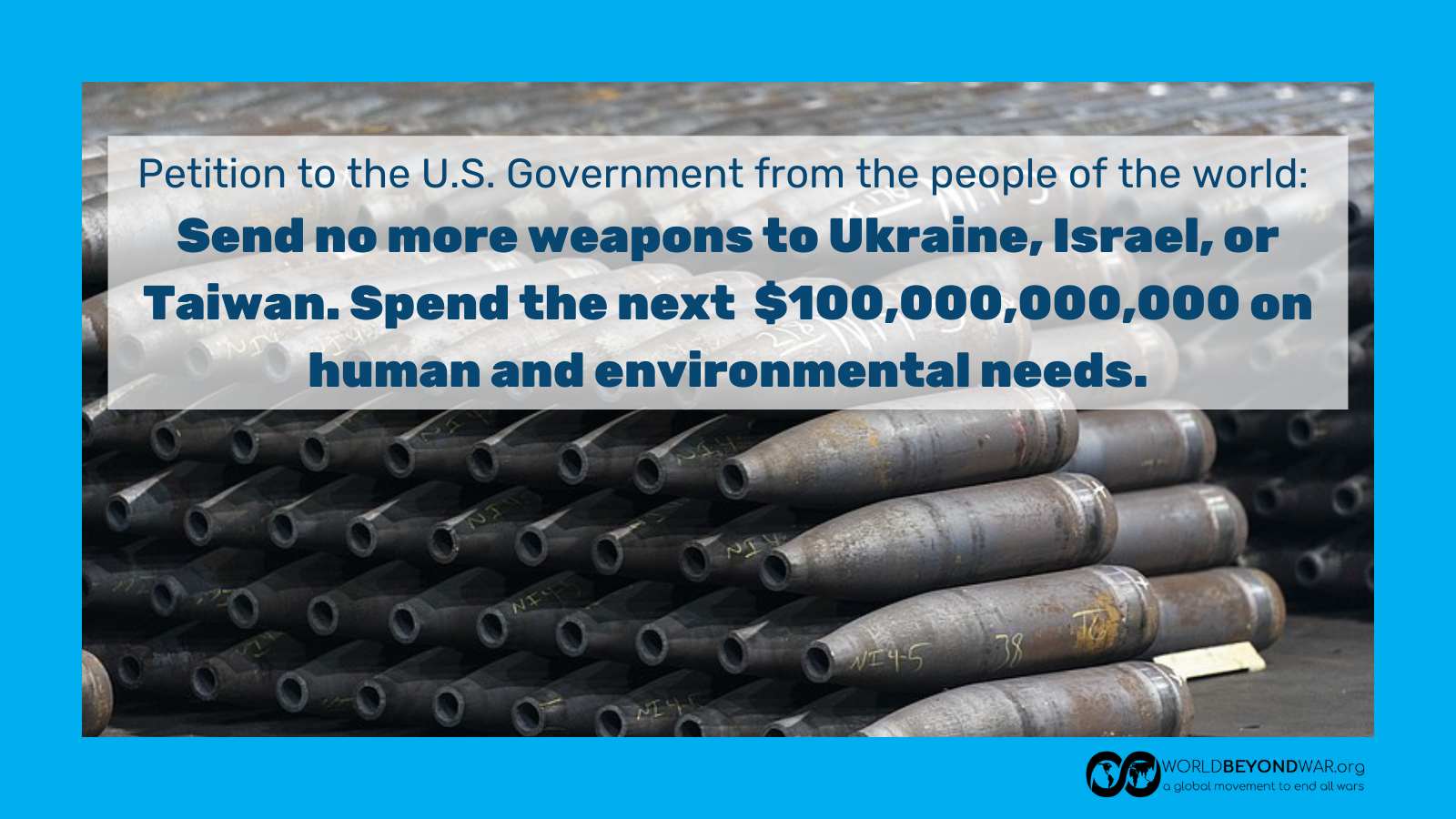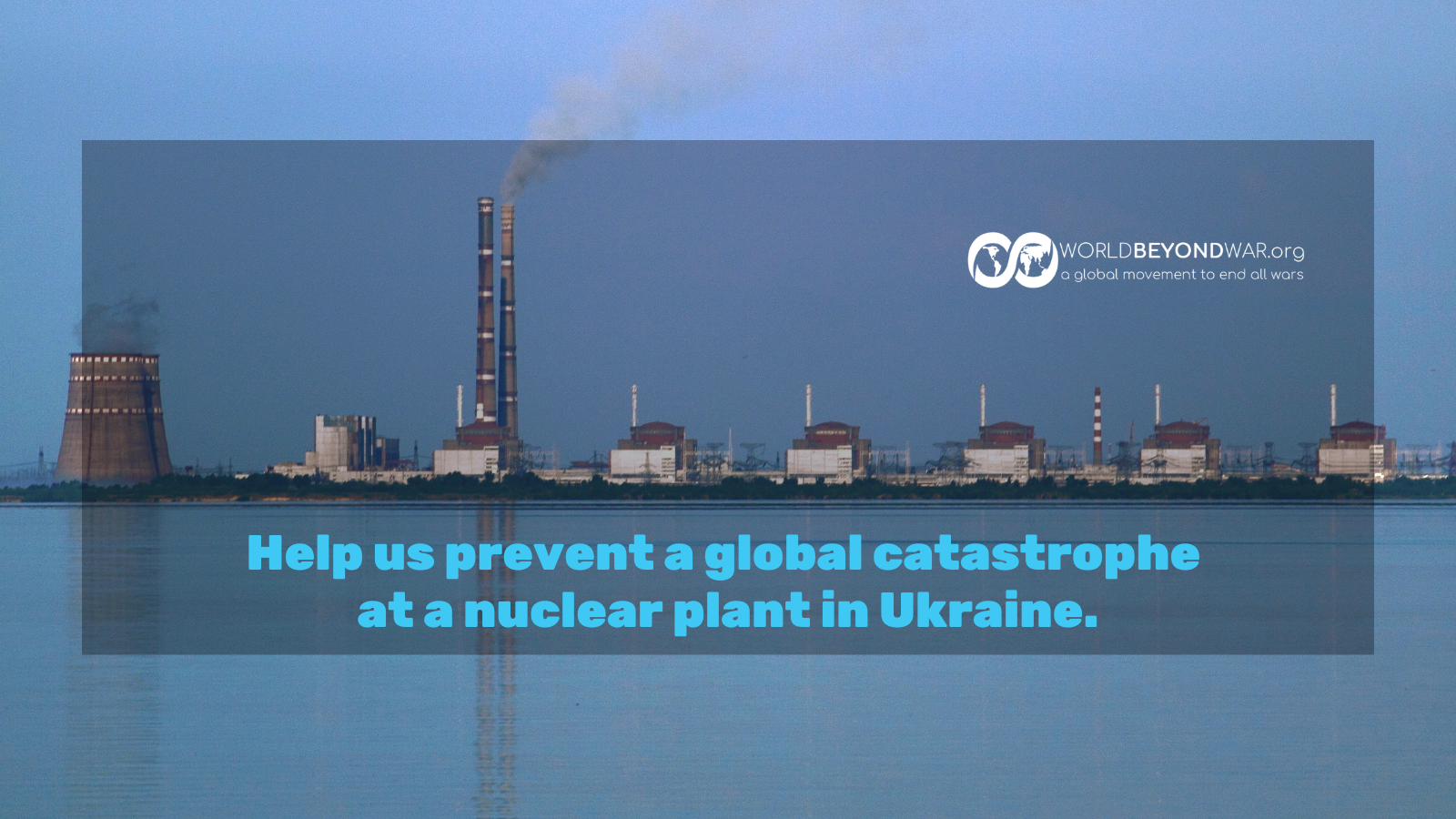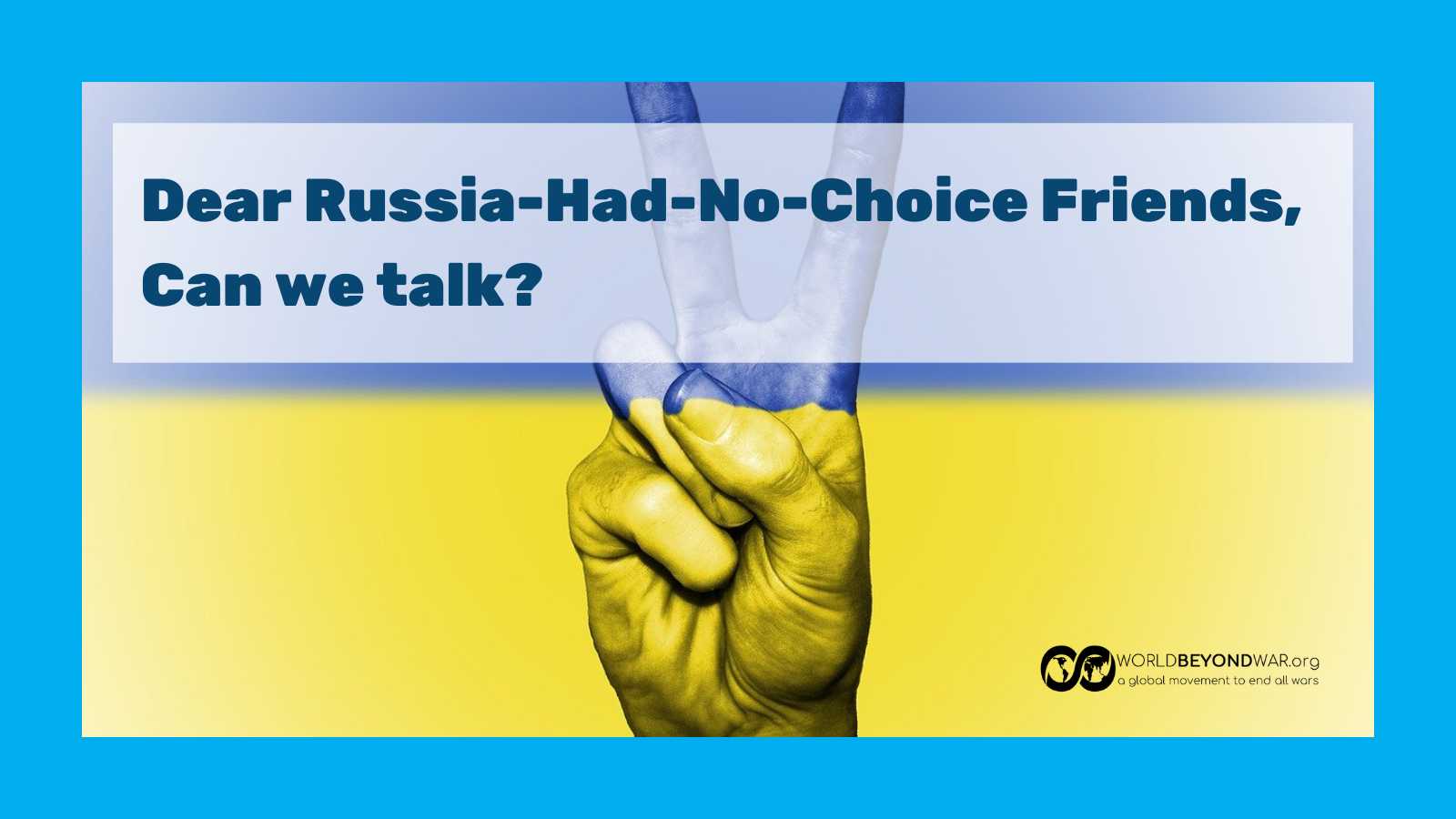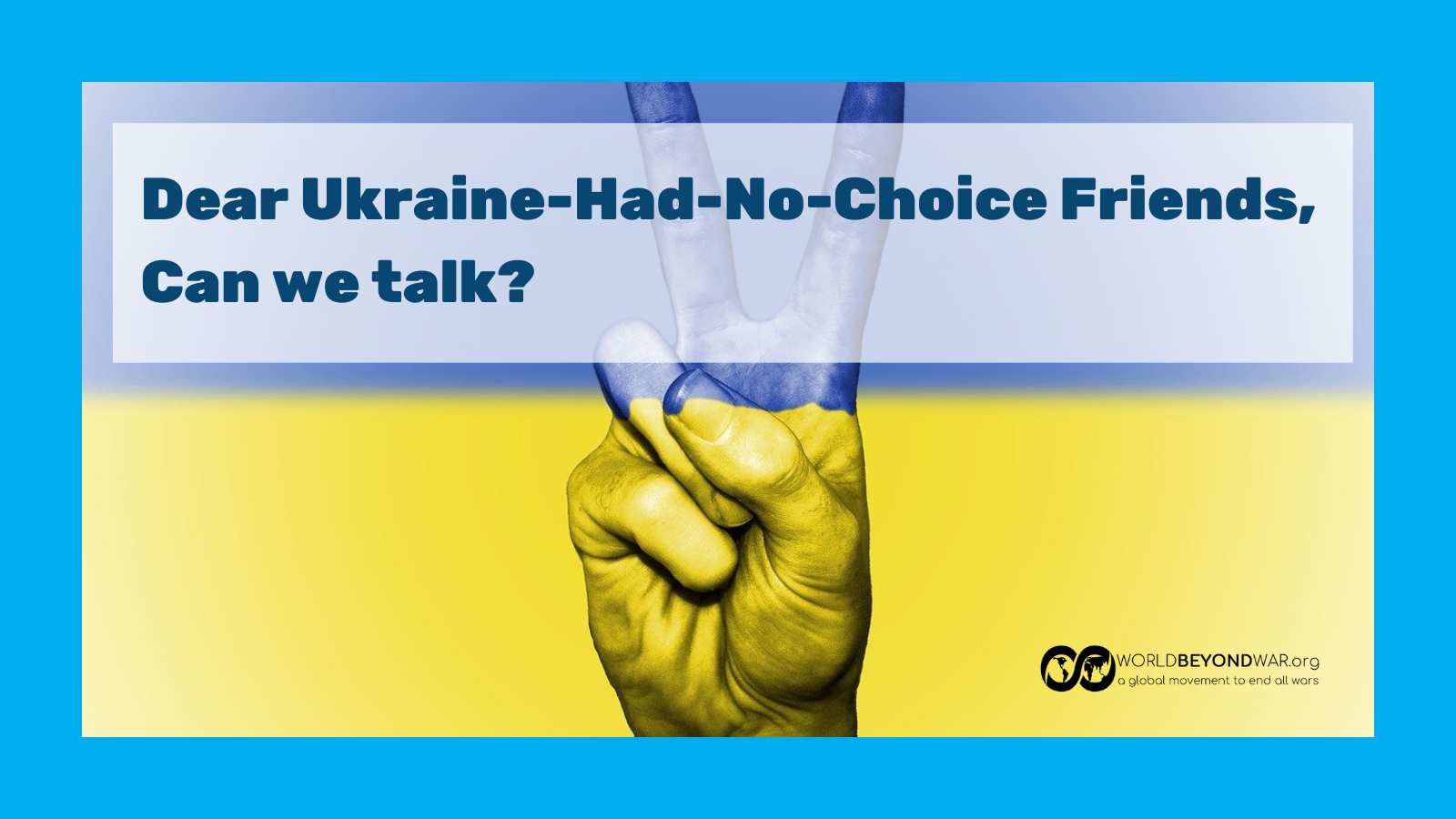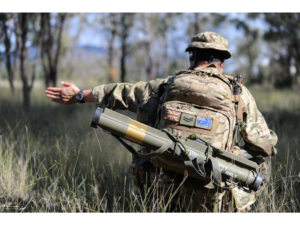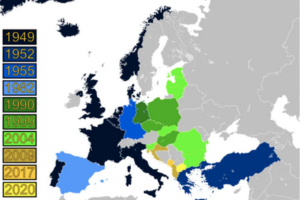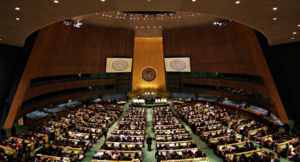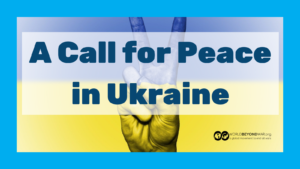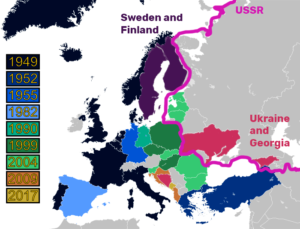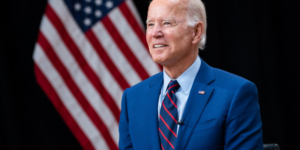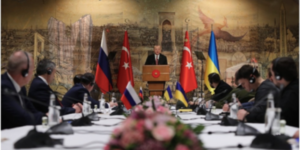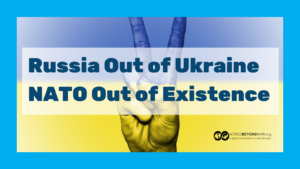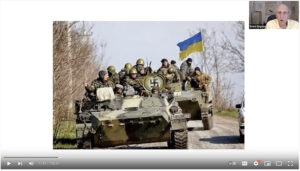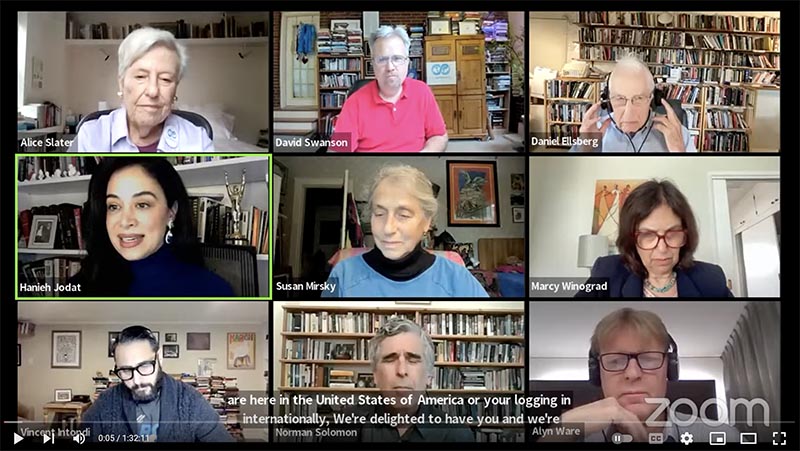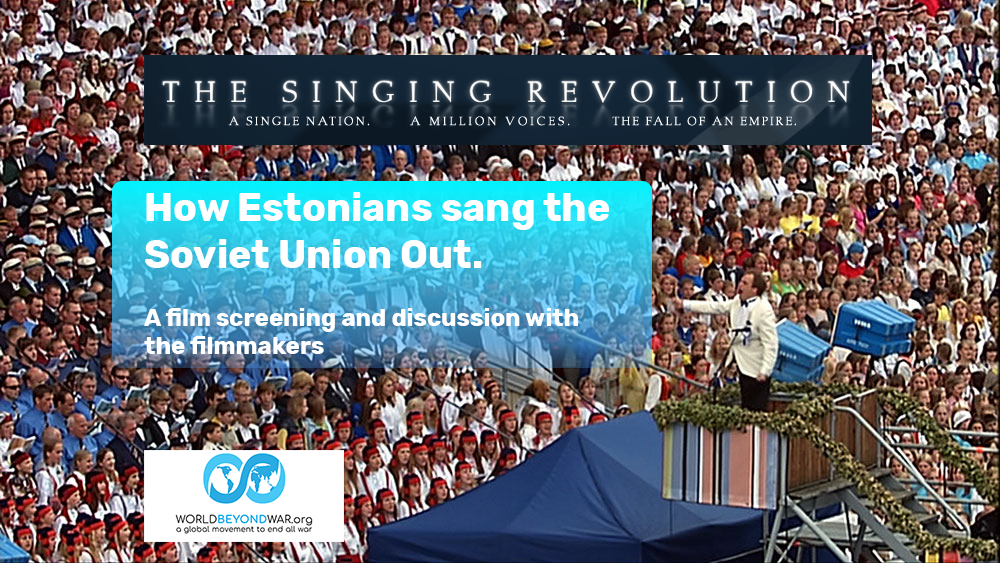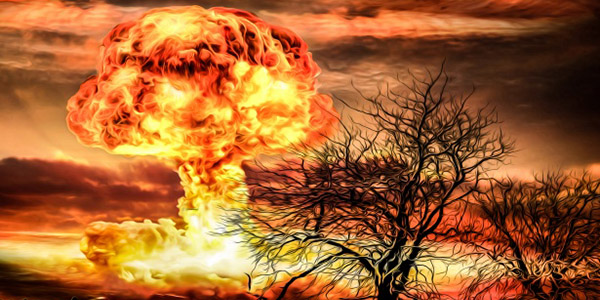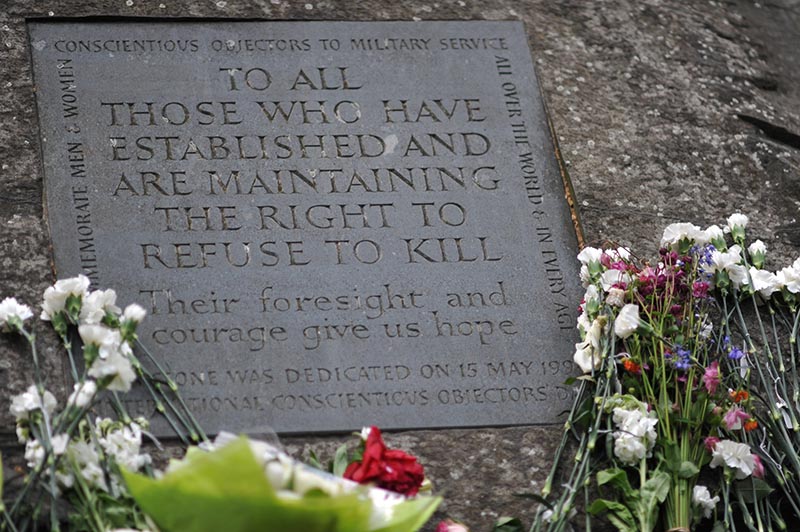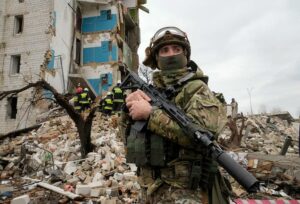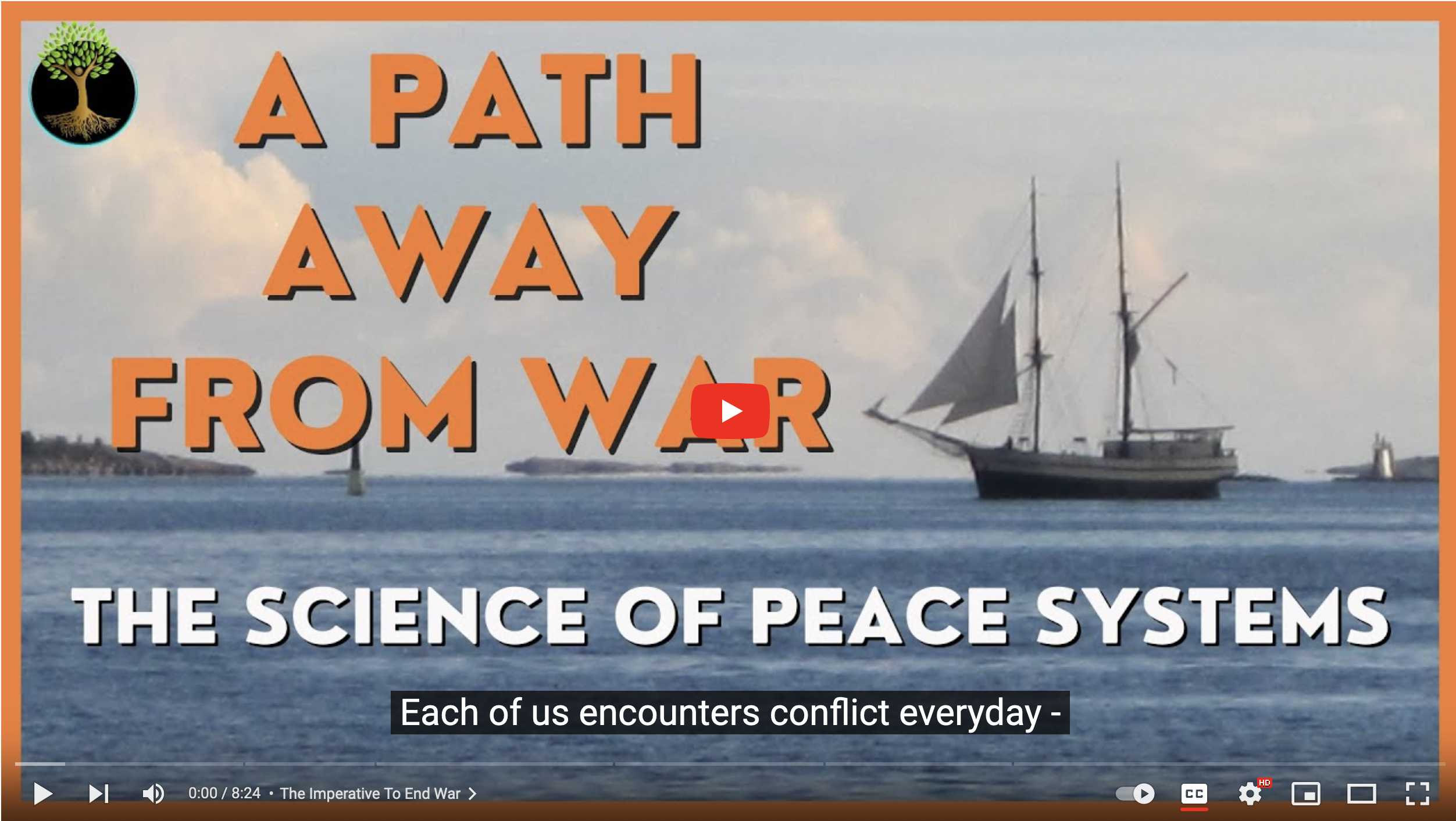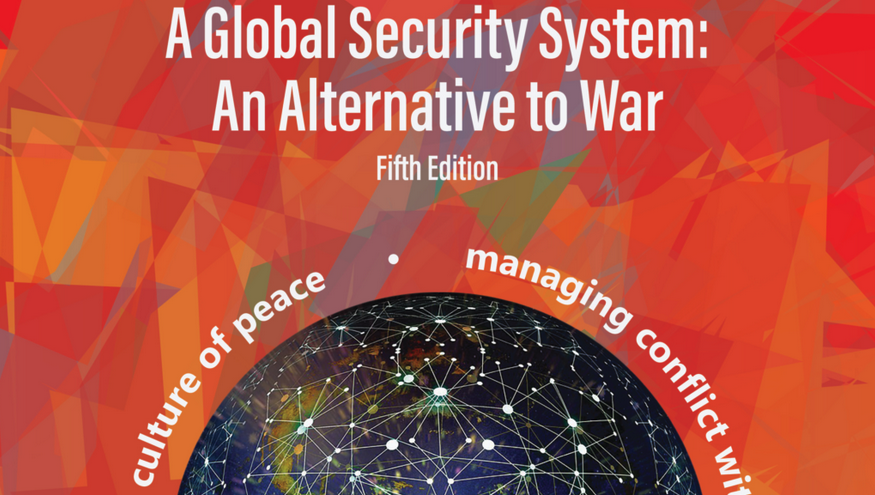This war will end with compromise and negotiation or with nuclear apocalypse. Total defeat of either side is dramatically less likely. So, while both sides are to blame, and while most people like to blame only one side or the other, what matters right now is that both sides are insisting on unconditional surrender, which will not happen — nuclear war will happen first. We need negotiations now!
Please Sign These Petitions
- No More Weapons Shipments
- Stop Prosecuting Yurii Sheliazhenko
- Free Conscientious Objectors in Finland
- Sign a Global Call to Cease Fire and Negotiate
- Petition the World's Governments to Actively Support Peace in Ukraine
- Petition the UN for the Rule of Law in Ukraine
- U.S. Campaign of Emails to Congress
Please Support These Coalitions
Find or Post Events:
A Project You Can Help With
Key Articles
Remarks by David Swanson, World BEYOND War Executive Director, at a rally in U.S. President Joe Biden’s hometown in July 2023.
Here we are outside what appears to be a factory where U.S. government dollars create jobs, boost the economy, and fund activities that support the important needs of the U.S. public and the people of the world. Not a bit of those appearances is real.
When government dollars are spent on weapons, they eliminate jobs, because spending those dollars on education or green energy or never taxing them in the first place creates more jobs than spending them on weapons — and better paying jobs with wider economic impact — and that’s regardless of whether the weapons are given away to a foreign government and whoever ends up with them. Weapons are not products or services that circulate in the economy. They are made to destroy themselves and much else. And a huge chunk of the money ends up with very few people. This economy is drained and degraded by the funding of this factory — a reality that becomes apparent if we direct our vision more widely.
Compare life around here with life in many more wealthy and less wealthy countries. Where is our free higher education? Where is our secure retirement? Where is our healthcare as a human right? Where is our protection from the indignity and ordeal of poverty in the midst of mountainous wealth? Where, oh Amtrak Joe, for the love of all that is decent, are our non-antique trains? Why do we all travel about in Earth-eating automobiles? How is it that we’ve been kept so ignorant that we can be told we’re dreaming of fantasies when we speak of things that are normal for many more people than live in this country — a country where bringing back child labor is deemed progress?
Wait! we are told, first things first. We must manufacture weapons to save the world. After that we can worry about lesser matters. But we have been misled. All is not as it seems. The expansion of NATO, driven by the desire to sell weapons, is one half of the war dance that got us here. The U.S. refusal to allow peace negotiations keeps the war going. It’s not good enough to say that the Russians are immoral and evil and therefore the U.S. should do whatever Russia does. It’s not good enough for each side to justify using various weapons because the other side does, to place nuclear weapons in more countries because the other side does, to declare the only acceptable outcome complete overthrow of a government — whether Ukraine’s or Russia’s — because the other side does. It’s not good enough to say we are fueling a war that is killing off the people of Ukraine because the Ukrainian government supports it. When did corrupt governments run by television actors and bowing to rightwing pressures become our arbiters of moral wisdom? Is it the fumes from these factories that make us forget that we know better?
A journalist recently called giving weapons to Ukraine “too big to fail.” Like giving money to dirty banks. But one only says that about things that should fail but for which one imagines there are no alternatives. We have been misled. All is not as it seems.
President Biden says that Ukraine will join NATO after the war — practically guaranteeing that there will be no end to the war, other than a nuclear end to us all. The U.S. Senate just passed a bill banning ever leaving NATO, meaning that an ever-growing list of governments have the power to compel the rest of them to join in WWIII. Anything — anything at all — is a preferable alternative to this collective suicide pact. And there are some good alternatives. Unfortunately, they require certain emotional and intellectual feats that some find more difficult than sacrificing their own quality of life and the very lives of Ukrainians and Russians. The alternatives require compromise, humility, and acceptance of others as equals — skills we teach our children but not our Congress Members or Presidents.
Peace requires that neither the Russian not the Ukrainian government get everything it wants, everything it thinks it needs, everything it thinks it has killed a great many people for. That’s not easy. But the motivations for making peace could hardly be greater. Not only is this the path away from nuclear apocalypse, but it is also the path toward slowing the climate apocalypse and the accompanying catastrophes of homelessness, hunger, disease, and fascism. We need cooperation in place of combat, and we need it immediately.
The notion that we cannot demand and obtain such changes is in every news report and film. But we have been misled. All is not as it seems. The power of nonviolent action is exactly as strong as is reflected by the massive efforts invested in persuading us that it will not work. Let us remember in the words of Shelley to
Rise like Lions after slumber
In unvanquishable number–
Shake your chains to earth like dew
Which in sleep had fallen on you–
Ye are many — they are few.
The question of a Ukraine agreement is not a question, for two reasons. One, the warmaking parties want the war to continue. Two, if they were willing to make an agreement, everybody on all sides knows exactly (or darn near exactly) what it would have to be, and always has. Sooner or later, it will have to be agreed to, or the world end. (Yes, I’m aware that post-nuclear-apocalypse a rock will still be here with possibly some cockroaches on it; I just don’t find that particularly interesting.)
If we look at the Minsk II agreement in place prior to the war, compliance with which would have avoided the war, or at the proposals Russia was making just before its invasion, or the proposal from Italy last year (also here), or the proposal recently made by China, or the proposals from war-supporting stink tanks in the U.S. such as Brookings and the Center for the National Interest, we find that they share in common these points:
Ceasefire.
All foreign military forces out of Ukraine.
(Only China does not specifically state this, while it does state general principles that require it.)
Ukraine neutral / not in NATO.
(Only Minsk II does not say this, while China says it in its own vague way.)
Significant autonomy for the people of Crimea and Donbass to govern themselves as they see fit.
(Only Russia and China do not include this, and Minsk II does not mention Crimea; Italy says that these autonomous regions will be part of Ukraine, while the think tanks and Minsk II say that Donbass with be part of Ukraine, and the think tanks say that Crimea will be part of Russia. The National Interest proposes that Luhansk and Donetsk vote on their fate, and presumably does not say the same for Crimea only because Crimea already has voted and absolutely everyone knows how it would vote if it were to vote again.)
Demilitarization.
(While the details vary, all agree on the need to reduce the high level of weaponization, troops, and war preparations in the region.)
Ending sanctions.
(Only the two proposals that pre-date the recent sanctions on Russia fail to include the need to end unilateral sanctions.)
Rule of Law.
(All agree, only with variations in the details and hypocrisies, on the need to strengthen the international rule of law and the United Nations — except for the National Interest.)
Peaceful Relations.
(All agree on the need to establish peaceful, diplomatic relations, provide humanitarian aid, and — using other language — advance some process of truth and reconciliation.)
The fact that the above outline of an agreement is known to all is further suggested by the fact that Ukraine and Russia darn near agreed to it in March of 2022, before the U.S. and UK pressured Ukraine to keep the war going. Here’s a relevant bit from Medea Benjamin’s and Nicolas Davies’ book War in Ukraine: Making Sense of a Senseless Conflict:
“On March 10, the foreign ministers of Russia and Ukraine met in Antalya, Turkey, with Turkish Foreign Minister Mevlüt Çavuşoğlu mediating. These talks continued by video conference from March 14 to 17, with Israel as a second mediator, and produced a 15-point plan that Zelenskyy called ‘more realistic’ than previous proposals. The main points of the plan were for a cease-fire and Russian withdrawal, and for Ukraine to adopt a neutral status similar to that of Austria. Ukraine would renounce any future plan to join NATO and promise not to host foreign weapons installations or military bases, in exchange for new security guarantees from other countries. The Russian language would also be recognized as an official language in Ukraine. Russia’s sticking points involved the nature of the security guarantees and which countries would provide them, and the details of how the future of Crimea and the two People’s Republics in Donbas would be decided. But the outlines of a peace settlement were on the table.”
Until they weren’t. But it’s not as though we don’t still know what they are.
As much as any other town in the U.S., my town, Charlottesville, has failed in recent years when it comes to opposing wars. We used to be a leader, passing early resolutions through our city council — inspiring others — to advocate against wars in Iraq or Iran, against armed drones, telling Congress to move funding to human and environmental needs, divesting public dollars from weapons companies, ridding local police of weapons of war, etc. Peace rallies were not rare occurrences.
At long last we have an event planned to advocate and strategize for peace in Ukraine, one that will be livestreamed for the world to see at cvilleukraine.org. From a certain perspective, it’s very strange that it’s taken so long. Nothing in my lifetime has done more to increase the risk of nuclear apocalypse than the war in Ukraine. Nothing is doing more to impede global cooperation on climate, poverty, or homelessness. Few things are doing as much direct damage in those areas, devastating the environment, disrupting grain shipments, creating millions of refugees. While casualties in Iraq were heatedly disputed in U.S. media for years, there’s widespread acceptance that casualties in Ukraine are already near half a million. There’s no way to precisely count how many lives could have been saved around the world by investing hundreds of billions in something wiser than this war, but a fraction of that could end starvation on Earth.
From another perspective, it’s clear why there has been so much acceptance of this war. It’s U.S. weapons, not U.S. lives. It’s a war against a country demonized in U.S. media for decades, for its actual crimes and for fictions like imposing Donald Trump on us. (I can understand not wanting to admit that we did that to ourselves.) It’s a war against a Russian invasion of a smaller country. If you’re going to protest U.S. invasions, why not protest a Russian invasion? Indeed. But a war is a not a protest. It’s mass slaughter and destruction.
Manipulating good intentions is part of the standard package, folks. Destroying Iraq was marketed in the United States as for the benefit of the Iraqis. The most obviously provoked war in recent years, in Ukraine, was christened “The Unprovoked War.” U.S. and other Western diplomats, spies, and theorists predicted for 30 years that breaking a promise and expanding NATO would lead to war with Russia. President Barack Obama refused to arm Ukraine, predicting that doing so would lead toward where we are now — as Obama still saw it in April 2022. Prior to the “Unprovoked War” there were public comments by U.S. officials arguing that the provocations would not provoke anything. “I don’t buy this argument that, you know, us supplying the Ukrainians with defensive weapons is going to provoke Putin,” said Sen. Chris Murphy (D-Conn.) One can still read a RAND report advocating creating a war like this one through the sorts of provocations that senators claimed wouldn’t provoke anything.
But what can be done? Provoked or not, you have a horrendous, murderous, criminal invasion. Now what? Well, now you have endless stalemate, with years of killing or nuclear war. You want to do what you can to “help” Ukraine, but the millions of Ukrainians who have fled, and those who have stayed to face prosecution for peace activism, look wiser each day. The question is whether keeping a war going is more helpful to Ukrainians or the rest of the world than ending it with a compromise aimed at a sustainable peace. According to Ukrainian media, Foreign Affairs, Bloomberg, and Israeli, German, Turkish, and French officials, the U.S. pressured Ukraine to prevent a peace agreement in the early days of the invasion. Since then, the U.S. and allies have provided mountains of free weapons to keep the war going. Eastern European governments have expressed concern that if the U.S. slows or ends the weapons flow, Ukraine might become willing to negotiate peace.
Wow! Ukraine Ambassador Chalyi, who participated in peace talks with Russia in Spring 2022, states that “we concluded” “Istanbul Communique” & “were very close in… April to finalize our war with some peaceful settlement” & that Putin “tried everything possible to conclude… pic.twitter.com/NxknX9mTgP
— Ivan Katchanovski (@I_Katchanovski) December 28, 2023
Peace is viewed by some on both sides of the war (many of them quite far removed from the fighting), not as a good thing, but as even worse than ongoing slaughter and devastation. Both sides insist on total victory. But that total victory is nowhere in sight, as other voices on both sides quietly admit. And any such victory would not be lasting, as the defeated side would plot vengeance as soon as possible.
Compromise is a difficult skill. We teach it to toddlers, but not to governments. Traditionally a refusal to compromise (even if it kills us) has more appeal on the political right. But political party means everything in U.S. politics, and the President is a Democrat. So, what is a liberal thinking person to do? I would suggest a heavy dose of independent thinking. Nearly two years of peace proposals from around the globe almost all include the same elements: removal of all foreign troops, neutrality for Ukraine, autonomy for Crimea and Donbas, demilitarization, and lifting sanctions.
At this point, some observable action must precede negotiations. Either side could announce a ceasefire and ask that it be matched. Either side could announce a willingness to agree to a particular agreement including the elements above. If a ceasefire is not matched, the slaughter can be quickly resumed. If a ceasefire is used to build up troops and weapons for the next battle, well then, the sky is also blue and a bear does it in the woods. Nobody imagines either side as capable of switching off the war business that quickly. A ceasefire is required for negotiations, and an end to weapons shipments is required for a ceasefire. These three elements must come together. They could be abandoned together if negotiations fail. But why not try?
Allowing the people of Crimea and Donbas to determine their own fate is the real sticking point for Ukraine, but that solution strikes me as at least as big a victory for democracy as sending more U.S. weapons to Ukraine despite the opposition of the majority of people in the United States.
Key Books
- War in Ukraine: Making Sense of a Senseless Conflict by Medea Benjamin and Nicolas J.S. Davies with a preface by Katrina Vanden Heuvel.
- How the West Brought War to Ukraine by Benjamin Abelow
A Tale of Two Perspectives
Blog Posts
How You Can Tell It's a War for Freedom
🚨 Lindsey Graham has just confirmed that they are not sacrificing the Ukrainian people for "freedom" and "democracy," but for Ukraine's minerals, which are worth trillions of dollars, and the West wants them.
— Gabe (@GabeZZOZZ) June 9, 2024
This is unbelievable…
pic.twitter.com/A1aYqy6CPb
A Video Clip
Watch this short clip of World BEYOND War Board Member Yurii Sheliazhenko. Find the full video of that interview, and other videos and articles below.
"It is disappointing that support of Ukraine in the West is mainly military support," says Ukrainian peace activist Yurii Sheliazhenko (@sheliazhenko). "Reporting on conflict focuses on warfare and almost ignores nonviolent resistance to war." pic.twitter.com/SiaTkRumj9
— Democracy Now! (@democracynow) March 1, 2022
Social Media Graphics
Letters to Editors
Find sample letters to editors here and modify them (or not) as you like and submit them to your local media outlets along with plans for your events.
Things You Can Chant at Rallies
Chants
No more sobbing parents’ cries!
Time to make a compromise!
Ceasefire and negotiation!
No to nuclear escalation!
Videos
Playlist
Photos
Myths
War gains support and acceptance from widespread belief in false information, and the accumulation of false information into generally false concepts or myths about war. This is good news, because it means we are not intractably divided by ideology or worldview. Rather, we will find more widespread agreement about war if we can just achieve more widespread awareness of accurate information. We’ve grouped myths about war into the following categories:



